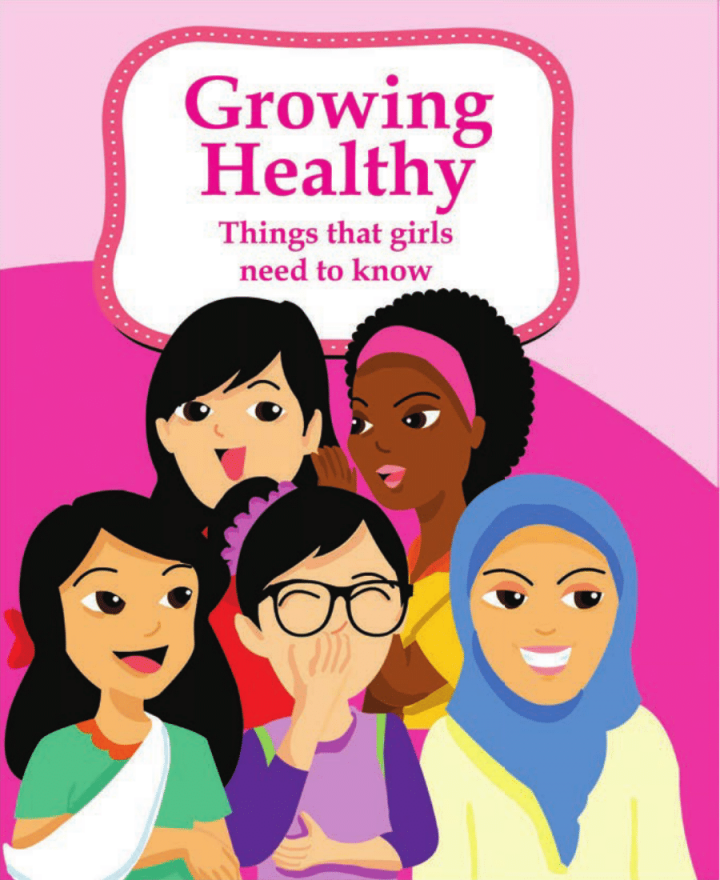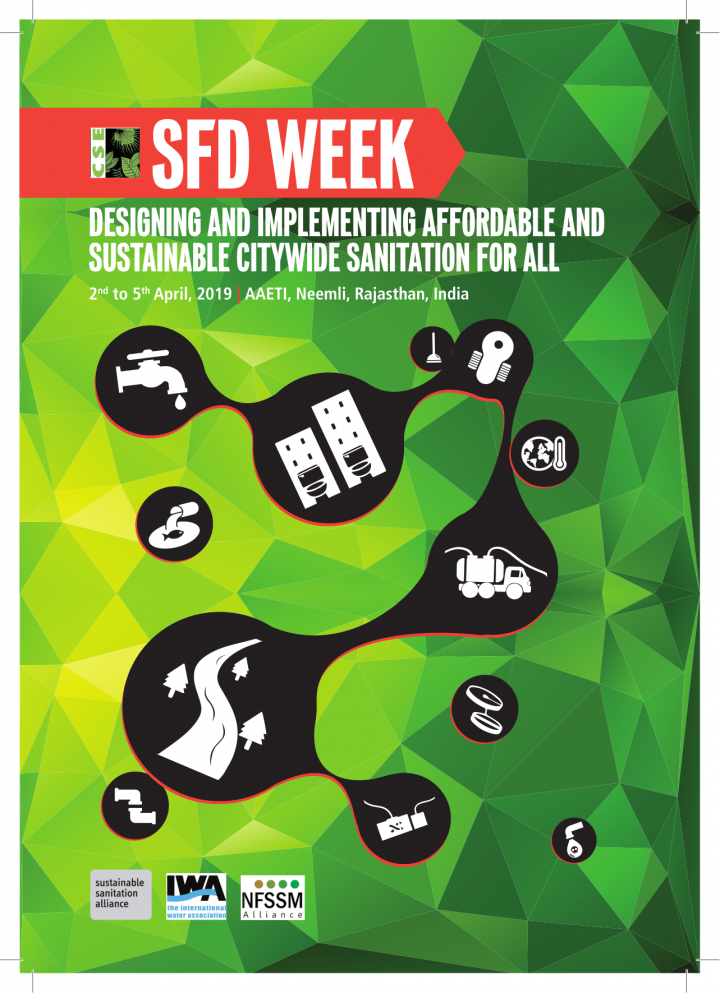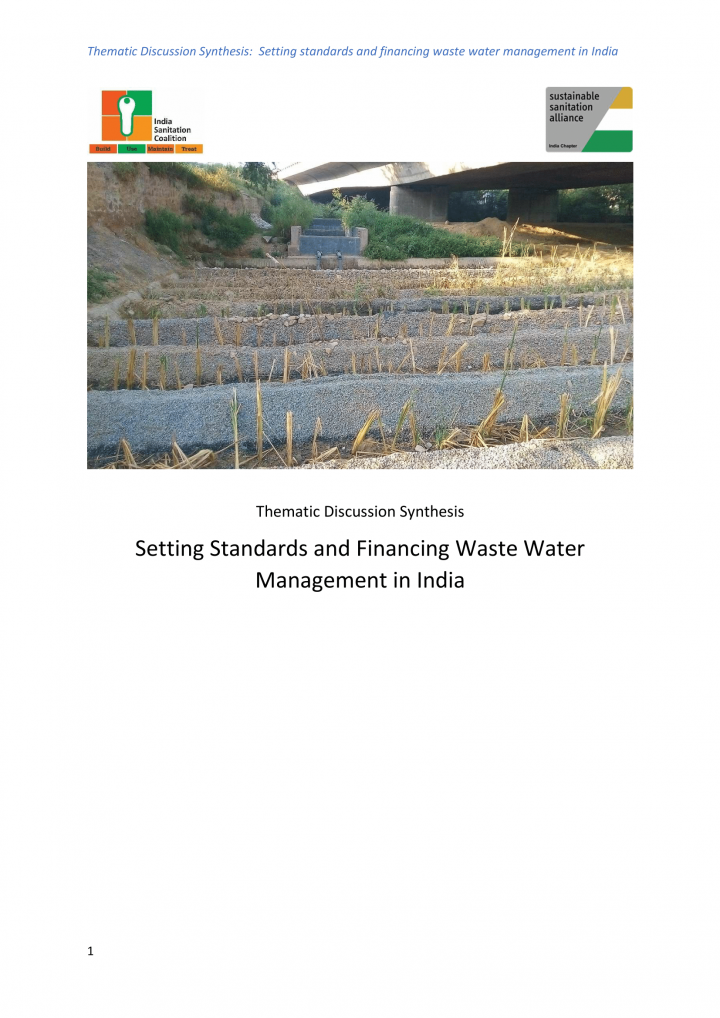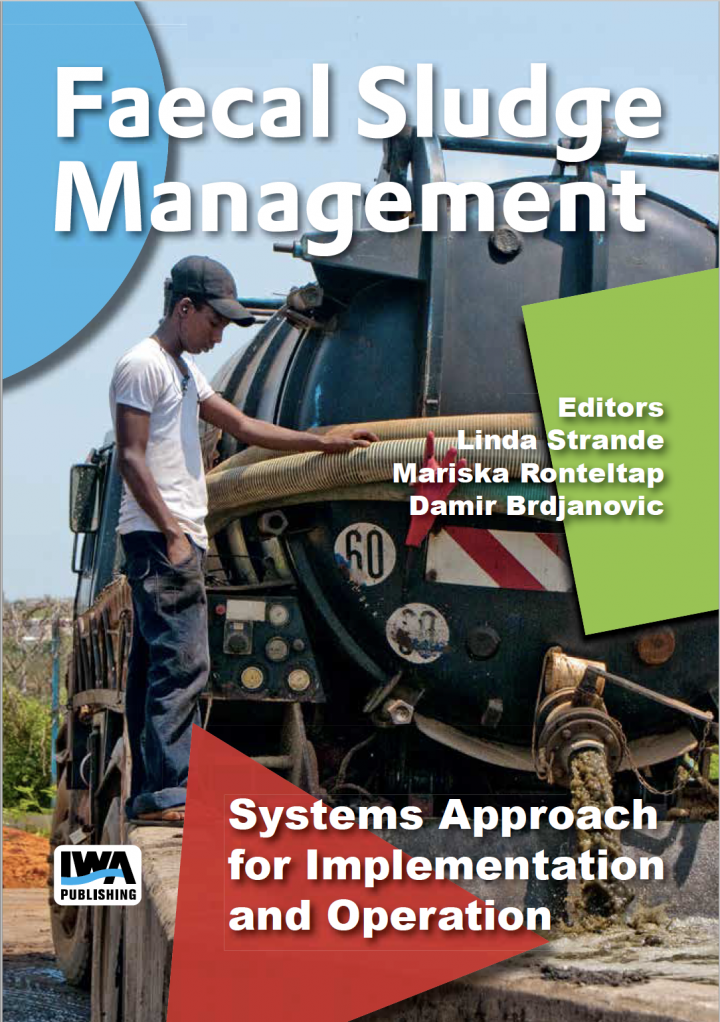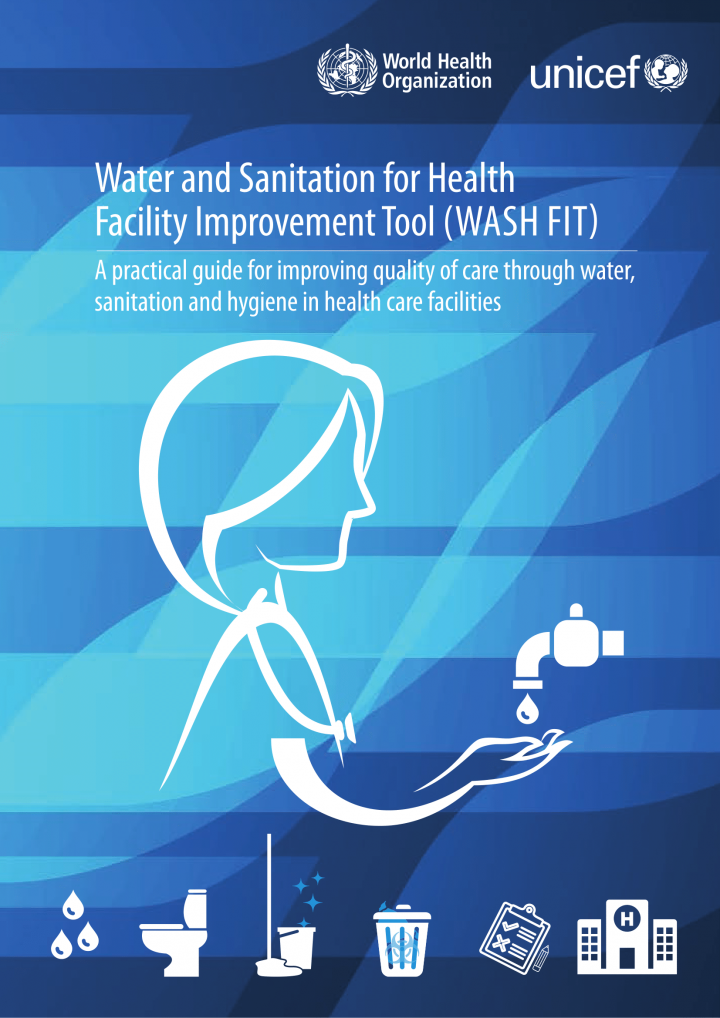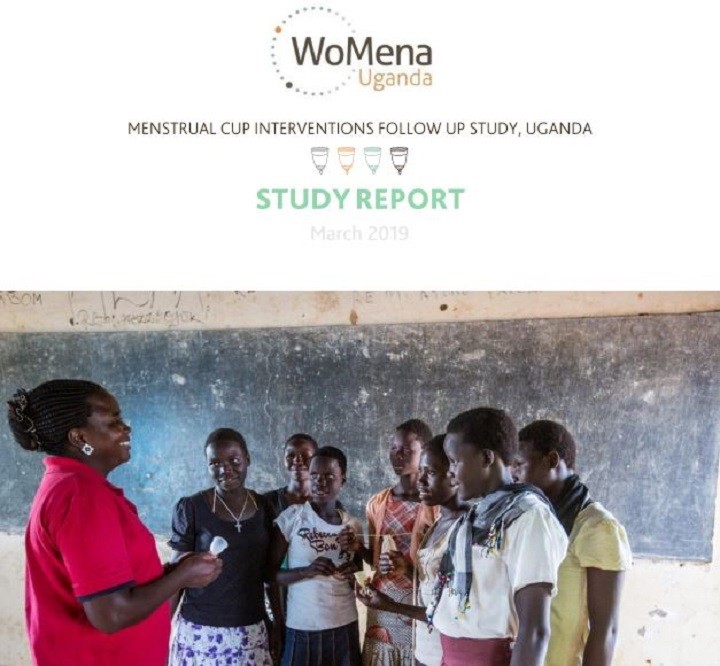Archer, J. P. and Noakes, L. (2018) Initial lessons learned in making sanitation data useful for decision making
Useful data is important for effective decision making. In 2017, the World Bank reported that poor data has led to an ineffective allocation of resources across the sanitation sector. The current data gap is also preventing the sanitation sector from tracking its progress in providing sanitation for people living in cities. This challenge is not insurmountable. A sector-wide response needs to include behaviour change in […]
UNICEF (2015) Growing Healthy Things that girls need to know
Menstruation is a sign of health, growth, and development for girls. It is part of the transition from being a girl to womanhood. This is a child-friendly material intended to teach girls about their periods. It has practical information presented in an approachable manner, covering common questions about menstruation, tips on how to handle the transition, and myths about periods. Additionally, it contains a calendar to […]
World Bank (2019) Evaluating the Potential of Container-Based Sanitation
Urban population growth in many developing countries outpaces gains in improved sanitation access and services. In such circumstances, the traditional approach to urban sanitation, premised on extending sewerage networks and building wastewater treatment (WWT) plants, will not be sufficient to deliver citywide sanitation services for all. Alternative approaches are needed to deliver adequate and inclusive sanitation services across the full sanitation service chain. Informal urban settings […]
Various Authors (2019) SFD Week 2019, Rajasthan, India SFD Week material
The SFD week conducted from 2nd to 5th April 2019, was a three-day conclave on sanitation that helped around 140 sector players, from across India and beyond, to not only learn from the deliberations that went by throughout the week but also witness and enjoy the serene atmosphere that AAETI offers. Here, you find the external link to the SFD Week material (presentations, videos, pictures) on […]
Kraemer, P., Marín Araya, M., Rodrigues, C., Valenzuela, L. (2019) Lanzamiento de SuSanA Latinoamérica (in Spanish) Launch of SuSanA Latin America
Durante la V LATINOSAN en San José, Costa Rica, se lanzó oficialmente SuSanA Latinoamérica. El evento fue moderado por Sergio Pérez, un especialista en agua y saneamiento del BID, y más de 70 asistentes participaron. Cecilia Rodrigues (Secretaría de SuSanA) ofreció un breve resumen del impacto global de SuSanA y las herramientas que ofrece la plataforma. Los objetivos específicos de SuSanA Latinoamérica fueron presentados por […]
Various Authors (2019) LatinoSan 2019, San José, Costa Rica, Materiales de la conferencia (in Spanish) Conference materials from LatinoSan 2019
La V Conferencia de Latinoamérica de Saneamiento 2019 tuvo lugar en San José, Costa Rica. LatinoSan es una conferencia del nivel internacional y regional, dónde se reúnen cada 3 años actores políticos, empresas y sociedad civil. El objetivo del evento es la promoción del acceso a servicios de saneamiento sostenible y de calidad, en el área urbana y rural de los países latinoamericanos. Esa entrada de […]
Bohnert, K. (2017) SFD Report - Naivasha, Kenya SFD Promotion Initiative
Naivasha sub-county is one of 11 constituencies in Nakuru County, Kenya. This geographical boundary was chosen for the SFD because the local water service provider, Naivasha Water Sewerage and Sanitation Company (NAIVAWASS), is mandated to serve the sub-county. Naivasha sub-county has an estimated population of 314,052. At the time of the last census, there were an estimated 73,457 households. The final SFD matrix shows that […]
Jacob, N. (2019) Setting Standards and Financing Waste Water Management in India Thematic Discussion Series Synthesis
This discussion will examine a few aspects of the waste water economy. In November 2018, the SuSanA India Chapter, IRC and TARU organised a face-to-face ‘Insights Discussion’ on sharing experiences on waste water challenges and solutions, facilitated by the Ecosan Services Foundation, in Mumbai. That discussion brought out five issues – setting standards for using waste water and sewage, faecal sludge treatment is not cheaper […]
WHO, UNICEF (2019) WASH in health care facilities Practical steps to achieve universal access to quality care
The purpose of this document is to present eight practical actions that Member States can take at the national and sub-national level to improve WASH in health care facilities. It also summarizes the global response to the UN Secretary General’s Call to Action. This document is a companion to the WHO and UNICEF JMP 2019 SDG baseline report for WASH in health care facilities (available […]
TBC (2017) Introducing The Sanitation Economy
The Sanitation Economy presents vast potential for global economic growth while addressing one of the most urgent grand challenges of our time, achieving universal access to improved sanitation (SDG6). It monetises toilet provision, products and services, biological resources, data and information to provide benefits across business and society.
Aavishkaar-Intellecap, TBC (2018) Beyond CSR To The Sanitation Economy Transformational Business & Investment Opportunities In India
The transition to the Sanitation Economy presents a transformational opportunity to ensure a sustainable future for sanitation systems that can provide alternatives to the cost burdened systems of today, towards cost recovery and full of life-improving innovations, business and commercial investment opportunities - that could turn the outlook for SDG 6 around and ensure the resilience of India’s progress on sanitation access via the Swachh […]
TBC (2018) The Sanitation Economy In Agriculture A Guide For Business
In the tea sector in Assam, India, the Toilet Board Coalition (TBC), together with the Ethical Tea Partnership (ETP), have been assessing Circular Sanitation Economy approaches for plantations, with new technologies, business models and infrastructure. This report outlines initial findings from our work with the tea sector in 2018, building a compelling economic case for Circular Sanitation Economy approaches in agriculture.
TBC (2018) Smart Sanitation City The Sanitation Economy At City Scale
In India, the Government’s Smart Cities Mission launched in 2016 seeks to develop 100 cities across the country making them citizen friendly and sustainable. There is a focus on efficiency, improved public services, goods, spaces, and modernisation of pubic services. At the same time, in 2014 the Government of India launched its Swachh Bharat Mission with the objectives of eliminating open defecation through the construction […]
Browder, G., Ozment, S., Rehberger Bescos, I., Gartner, T., Lange, G.-M. (2019) Integrating Green and Gray Creating Next Generation Infrastructure
A new generation of infrastructure projects that harness the power of nature can help achieve development goals, including water security and climate resilience. In this report from the World Bank and World Resources Institute, both organizations are calling for green infrastructure, such as mangroves and wetlands, to play a bigger role in traditional infrastructure planning. Integrating nature into mainstream infrastructure systems can produce lower cost […]
Strande, L., Ronteltap, M., Brdjanovic, D. (Eds.) (2014) Faecal Sludge Management (FSM) book Systems Approach for Implementation and Operation (in English, French and Spanish)
Over a billion people in urban and peri-urban areas of Africa, Asia, and Latin America are served by onsite sanitation technologies. Until now, the management of faecal sludge resulting from these onsite technologies has been grossly neglected. Financial resources are often lacking, and onsite sanitation systems tend to be regarded as temporary solutions until sewer-based systems can be implemented. However, the reality is that onsite […]
Sanchez, J., Myat, S.S., Kyaw, P.P. (2019) SFD Report - Mandalay, Myanmar SFD Promotion Initiative
Mandalay is located on the bank of the Irrawaddy on a rather flat and low flood plain, in the centre of Myanmar’s dry-zone. Mandalay is the second largest city of Myanmar. Mandalay experiences increased informal settlements due to rapid expansion. All sanitation infrastructures in Mandalay are onsite. The SFD graphic shows that 100% of excreta is not properly managed. It consists of 34% of supernatant not […]
WHO (2017) Water and sanitation for health facility improvement tool (WASH FIT) (in Arabic, English, French and Spanish) A practical guide for improving quality of care through water, sanitation and hygiene in health care facilities
UNICEF and World Health Organization (WHO) have collaborated to produce the WASH FIT tool in Arabic, English, French, and Spanish. This tool is designed for use by health care facility managers and health care staff e.g., the chief medical officer, financial administrator, doctors, nurses and persons in charge of managing water and waste. The WASH FIT guide contains practical step-by-step directions and tools for assessing and […]
GIZ, LWSC, LCC (2019) The development and use of SFDs for better sanitation investment planning A case story from Lusaka (Zambia)
The CSF-Lusaka project supports its implementing partners in the use of Shit Flow Diagrams (SFDs) to better understand and illustrate the sanitation situation in Lusaka City, the capital of Zambia. In 2018, a number of SFD reports were prepared, covering Lusaka City as a whole and looking into peri-urban areas or specific aspects of the Lusaka Sanitation Programme. This brochure provides an overview and summary […]
Hytti, L., Simkute, S. and Jahangir, A. (2019) Menstrual Cup Interventions Follow-up Study, Uganda
Globally many women and girls do not have access to appropriate Menstrual Health Management (MHM) methods that are effective, comfortable, convenient, affordable and safe to use and dispose of. Combined with inadequate facilities, social support and knowledge of menstruation as well as prevailing menstrual taboos and stigma, the lack of appropriate MHM methods can impact the physical, social and mental well-being of women and girls. […]
WHO and UNICEF (2019) WASH in Health Care Facilities Global Baseline Report 2019
The WHO/UNICEF JMP has expanded its global databases to include WASH in health care facilities. The 2019 global baseline report includes harmonized national estimates as well as regional and global estimates for 2016. The Key messages for sanitation are: In 2016: 1. 18 countries and only one SDG region had sufficient data to estimate coverage of basic sanitation services in health care facilities. 2. There were not enough […]

